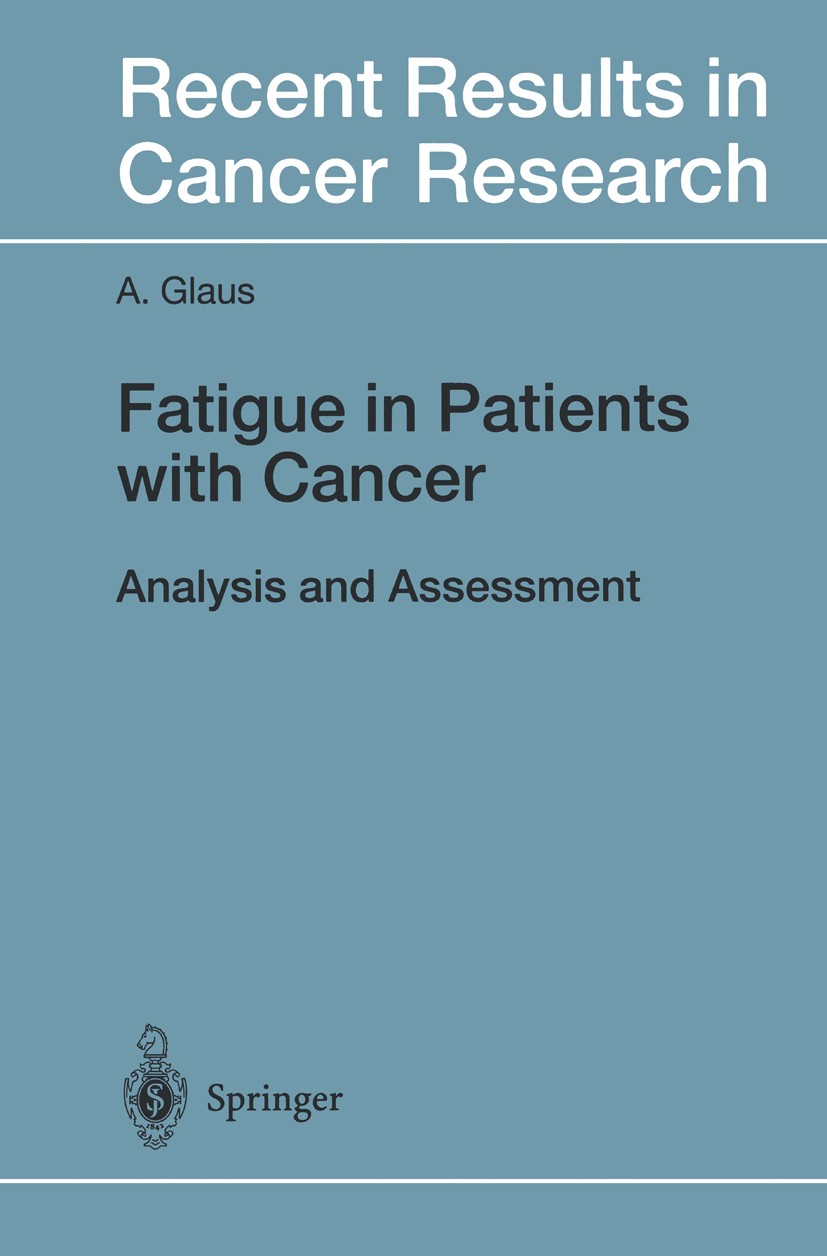| 书目名称 | Fatigue in Patients with Cancer |
| 副标题 | Analysis and Assessm |
| 编辑 | Agnes Glaus |
| 视频video | http://file.papertrans.cn/342/341432/341432.mp4 |
| 概述 | With new fatigue assessment questionnaire A "MUST" for researchers, oncology nurses and physicians |
| 丛书名称 | Recent Results in Cancer Research |
| 图书封面 |  |
| 描述 | Current literature shows that there is a gap in our knowledge about how tired ness/fatigue in cancer patients should be defined and measured. Existing fa tigue-related research in cancer patients shows conceptual and measurement differences (Piper 1993). There is no continuum of tiredness/fatigue in univer sal use. What do patients mean if they fill in a visual analogue scale indicating that they feel "very tired"? Is it an indicator of general well-being, and thus an 1993)? Most articles estimate of general quality of life (Hiirny and Bernhard written by English authors use the word fatigue to identify extreme tired ness. It could be said that in the English language, tiredness that is perceived as unusual, continuing distress is fatigue rather than tiredness. In the German language, tiredness (Mudigkeit) is not primarily a term for distress attributed to disease or unusual effort. But tiredness becomes a distressing phenomenon when it no longer regulates a healthy balance between rest and activity but represents unusual, abnormal or excessive whole-body tiredness that is dis proportionate to or unrelated to activity or excessive exertion (Piper 1993). As there is no word for |
| 出版日期 | Book 1998 |
| 关键词 | Bewertung; Fatigue; Gesundheit; Konzept; Krebs; Müdigkeit; assessment; cancer; concept; fat; health; oncology; p |
| 版次 | 1 |
| doi | https://doi.org/10.1007/978-3-642-51466-1 |
| isbn_softcover | 978-3-642-51468-5 |
| isbn_ebook | 978-3-642-51466-1Series ISSN 0080-0015 Series E-ISSN 2197-6767 |
| issn_series | 0080-0015 |
| copyright | Springer-Verlag Berlin Heidelberg 1998 |
 |Archiver|手机版|小黑屋|
派博传思国际
( 京公网安备110108008328)
GMT+8, 2026-1-2 01:20
|Archiver|手机版|小黑屋|
派博传思国际
( 京公网安备110108008328)
GMT+8, 2026-1-2 01:20


